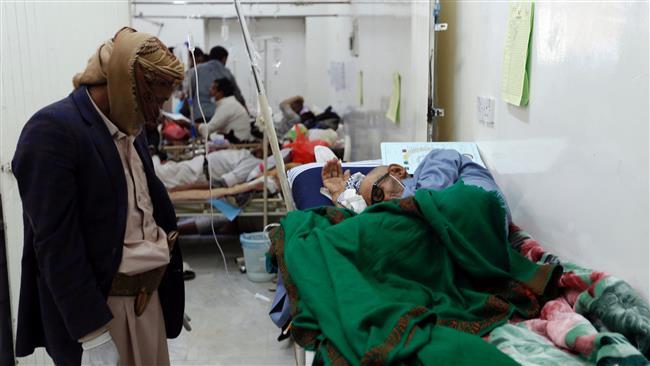
RNA - The UN health agency said on Friday that a total of new 3,460 suspected cases of cholera and 20 deaths had been reported in the country in the past day alone.
"The speed of the resurgence of this cholera epidemic is unprecedented," said Nevio Zagaria, the WHO country representative for Yemen.
He said the number of suspected cholera cases could be far larger than those registered as humanitarian workers cannot access some parts of the country.
Zagaria warned that the number of those infected could hit a quarter of a million people by the end of the year.
Cholera, which causes severe diarrhea and dehydration, is transmitted through contaminated drinking water and could prove fatal in up to 15 percent of untreated cases.
"The population is using water sources that are contaminated," Zagaria said, referring to the lack of electricity, which subsequently led to the malfunction of water pumping stations as well as a damage to sewer systems.
Zagaria added that many of the remaining health workers in the country had not been paid for seven months.
On May 14, Yemen's Health Ministry declared a state of emergency in the capital Sana'a in connection with the epidemic.
International organizations, including the United Nations and the Red Cross, say the Saudi-led war on Yemen and an embargo against the country may be responsible for the cholera epidemic. The Saudi aggression has taken a heavy toll on the poor country’s facilities and infrastructure, destroying many hospitals, schools, and factories.
Zagaria said the United Nations agencies were preparing to "release an emergency response cholera plan in the next 48 hours," aimed to dramatically increase the number of treatment centers and rehydration centers.
He also called for providing Yemeni authorities with needed financial resources to make the necessary infrastructure repairs in order to halt the spread of the disease.
"The spread of the disease is too big and they need substantial support, in terms of repairing the sewer system, ... treating and chlorinating the water sources," said the WHO representative.
Since March 2015, the Saudi regime has been engaged in a brutal campaign against Yemen in an attempt to reinstall Abd Rabbuh Mansur Hadi, the president who resigned and is a staunch ally of Riyadh. The campaign also aims to crush the Houthi Ansarullah movement. The Saudi regime has failed to achieve its objectives.
Latest tallies show that the war on Yemen has so far killed over 12,000 Yemenis and wounded thousands more.
847/940